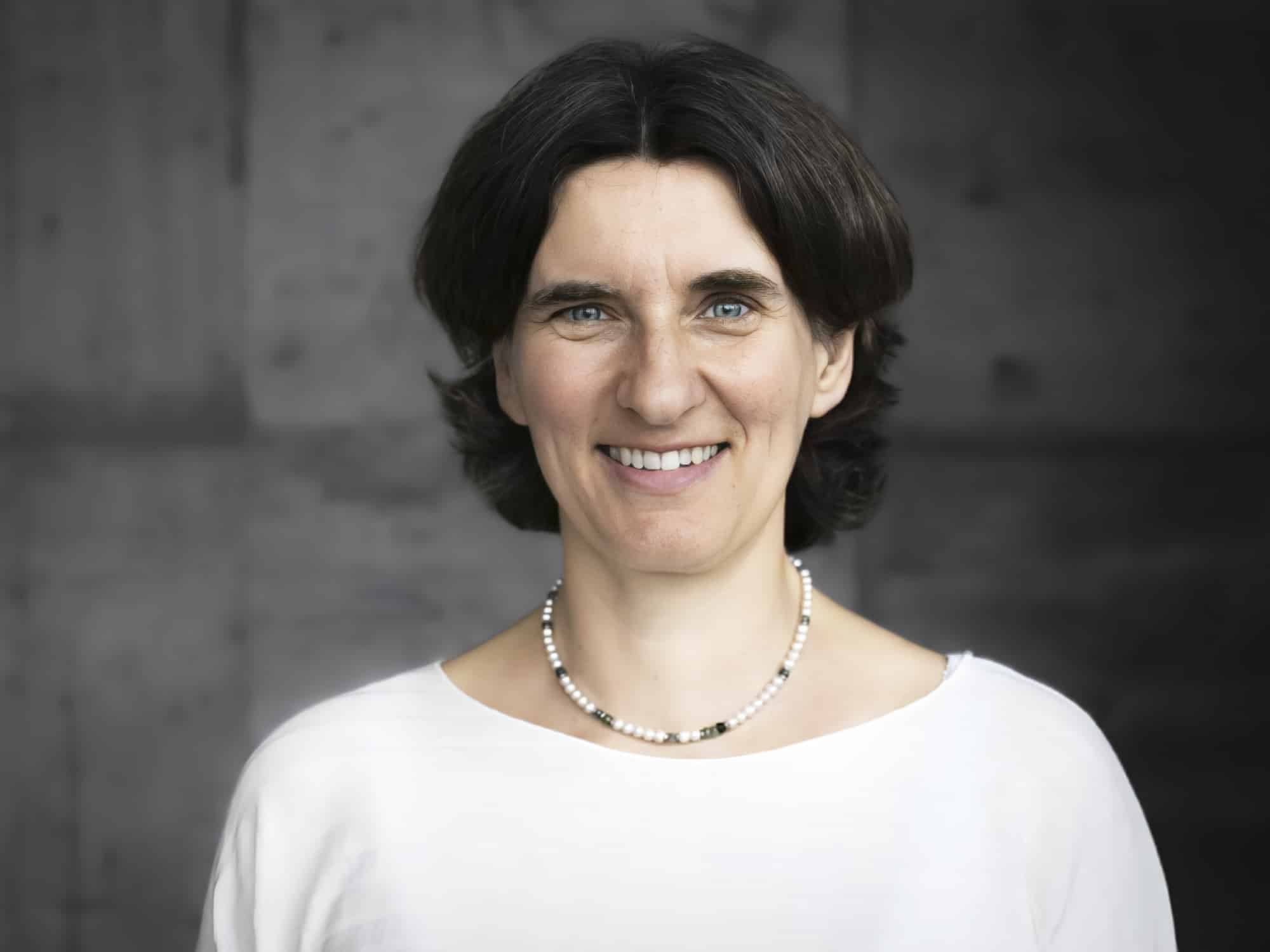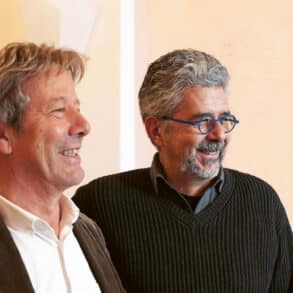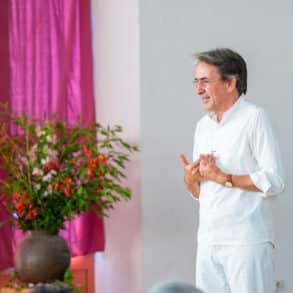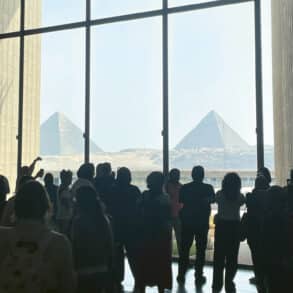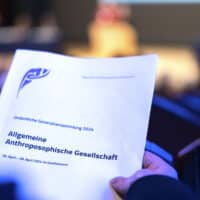The number of people suffering from mental illness and can cope only minimally with everyday life is increasing worldwide. Children and young people are also affected. The pandemic has had an especially negative impact on them. But corona is only the tip of the iceberg, says Karin Michael, paediatrician and co-head of the Medical Section at the Goetheanum. Franka Henn interviews.
How do you find the state of health of children and adolescents now, after Corona time?
Karin Michael I have to broaden my perspective by asking: what phenomena have become more concentrated and intensified in childhood in recent years? Exhaustion is a core symptom. What about the forces of the rest of us and of nature? With this view, I can then look at how children and young people are doing. We have to think about parents, teachers, educators, etc. as well. Then comes the question: how do I experience my own forces? This was also how we decided on the theme for our Life Forces Conference which was held at the end of May 2024. It’s often not understood how much our forces depend on our relationship with our body, which is mirrored in our relationship with nature. That’s why we also want to facilitate sensory experiences at the conference—because when we feel a certain way, we also gain access to the forces within us.
Where does the overwhelming exhaustion come from?
This is complex and multilayered. We have fallen out of our rhythms, and this was further exacerbated by coronavirus. Without rhythm in nutrition, sleep, meetings, etc., there is a fundamental debilitation or tendency towards exhaustion, wholly physiological. On the other side, what is the nerve-sense system doing today? In many people, it is perpetually flooded with stimuli. This causes stress and pulls us out of our biorhythms. So exhaustion is also linked to the digitalisation and virtualisation of our living environment. It all starts with adults, but children grow up within this environment, and it makes healthy development more difficult for them.
Is it less relevant to discuss the consequences of pandemic policies for children and young people than how the long-term effects of health, or lack thereof, in the adult world will affect them?
Corona has acted like a magnifying lens. The state of emergency has also affected and changed adult life and exacerbated already existing hardships immensely. Some families have been lucky and have still been able to organise themselves well. But in many cases, rhythms have crumbled even further, and the virtual media world has become even more of a babysitter or teacher. Naturally, it was especially drastic for single parents or socially disadvantaged people who are dependent on an external infrastructure.
What consequences have you observed among children and young people following this deterioration?
The exhaustion phenomenon is pervasive. A kindergarten child can heal many things through intensified movement, experiencing nature, and fostering relationships, senses, and rhythm. Younger children regain their strength, confidence, self-efficacy, and joy for life. How older children can be empowered again, through a change in school life, is one of our essential concerns at the Von Tessin Center for Health and Education [von Tessin-Zentrums für Gesundheit und Pädagogik] in Stuttgart. Adolescents have been hit at a very sensitive point in their lives, and this is not as easy to compensate for as it is with younger children. Adolescents have been deprived of contact and freedom at an age when peer groups, relationship development, and distance from parents are healthy and necessary for their development. This has resulted in pain, but also loneliness, withdrawal, or a complete immersion in a parallel virtual world. When pain in the soul is no longer bearable, we increasingly observe phenomena such as cutting/self-harm and eating disorders. Depression, anxiety, and loneliness have increased alarmingly. Media addiction has also risen significantly. We can’t reach young people simply through healthy, creative, nature-loving education. Some have slipped so far away that they’re just no longer interested.
It is often not understood how much our forces depend on our relationship with our body, which is mirrored in our relationship with nature.
How can adults and the medical profession support young people?
In my opinion, there are many elements of Waldorf education that are great remedies, but these are not limited to Waldorf schools per se. These include play-acting, for example. Here, children are allowed to try out roles and immerse themselves in an exciting world that can make participation interesting and attractive again. Music and dance projects, work placements, engagement with the community or society, land surveying, and farming also allow people to get out of their everyday lives and experience themselves in a new and intense way. These are gems that we need to utilise more and that should run throughout the school year. It would also help to focus on the issues that strongly stimulate young people, where they experience hardships, and let them work on solutions themselves. Take climate change, for example. The focus is on experiencing self-efficacy and the sincerely conveyed challenge: “It depends on you!” These experiences of reality lead back to life and to other human beings. There is a lot of evidence that creative and reality-based education does not stand in the way of cognitive development; on the contrary, it promotes and enables it in the first place.
So, healing lies in the experience of one’s creative source, whether it’s artistic, pragmatic, or visionary?
Yes, and also in the experience of the other. It is of central importance to be in a real relationship and feel the contrast to abstract experiences as an avatar on the internet, who is perhaps in contact with a hundred unreal beings. The longing to be in a relationship and to experience sexuality and touch for the first time is great in adolescence.
Is the situation more dramatic for the younger generation?
I like to look on the bright side. We can do a lot more for children and young people who have experienced the pandemic restrictions. Many essential things were made much more difficult. In that respect, yes, it is! I would describe it as dramatic, and I certainly wouldn’t want to repeat it. However, the fundamental challenge of living between the virtual and real world and not getting lost has been looming for years. In order to meet this challenge, we need to fundamentally rethink and reorganise education in a way that will lead to health and freedom.
More von Tessin-Zentrum
Translation Joshua Kelberman
Image Karin Michael, Photo: Xue Li

